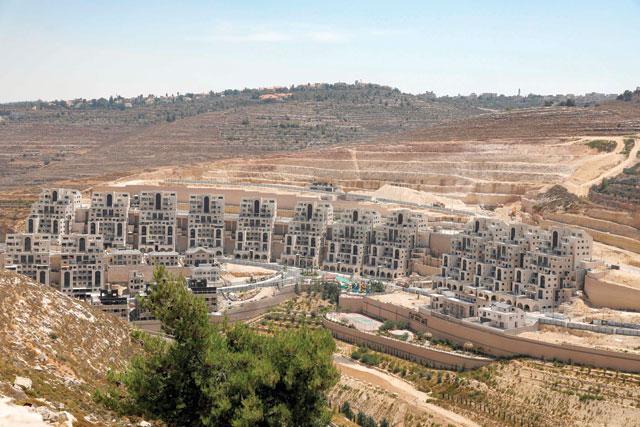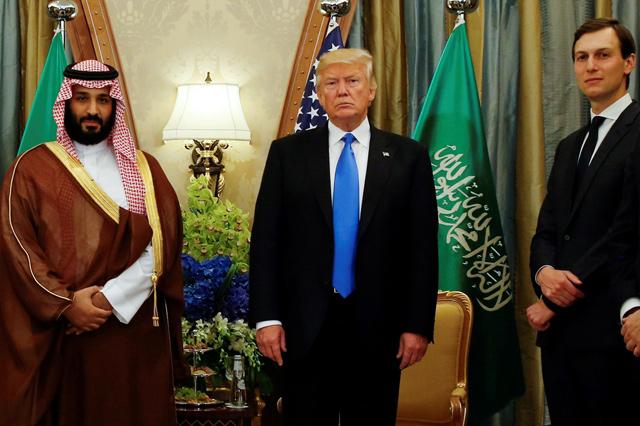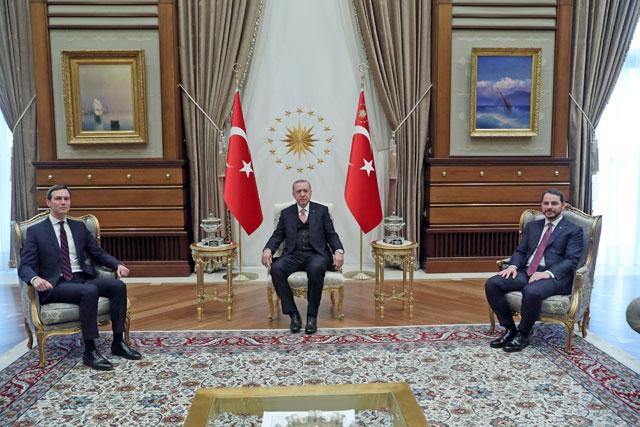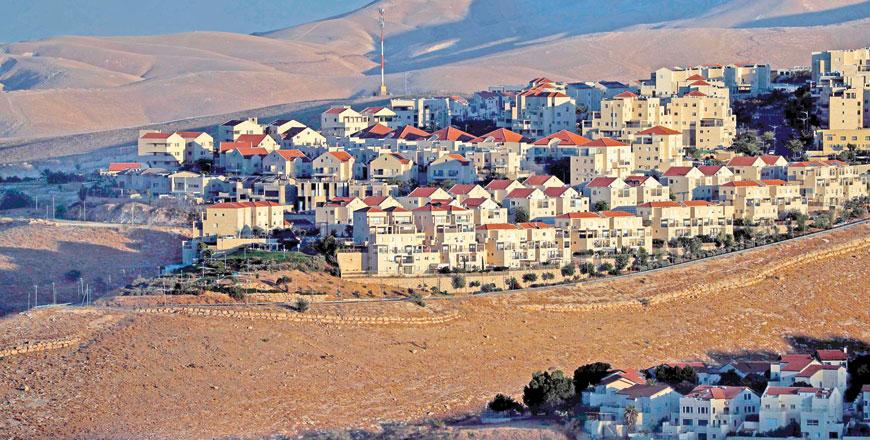You are here
Kushner visits after Israel okays homes for Palestinians, settlements
By AFP - Aug 01,2019 - Last updated at Aug 01,2019

A general view of a construction site in the Israeli settlement of Givat Zeev in the occupied West Bank, north of occupied Jerusalem, on Wednesday (AFP photo)
OCCUPIED JERUSALEM — Israel has given rare approval to Palestinian homes in the part of the occupied West Bank it fully controls while also backing a large settlement expansion, ahead of White House adviser Jared Kushner's key visit Wednesday.
An Israeli official, speaking on condition of anonymity Wednesday, confirmed the approval by the country's security Cabinet the previous day, ahead of the arrival by US President Donald Trump's son-in-law and senior adviser.
The approval of 700 homes for Palestinians and 6,000 Israeli settlements comes as the White House seeks to promote Kushner's long-awaited peace plan.
It was not immediately clear if all of the homes would be new or if some already exist and are receiving retroactive approval.
While the number of homes approved for Palestinians is relatively small and far outweighed by the number of settlements, the move could allow Prime Minister Benjamin Netanyahu to argue he is making efforts to make Kushner's plan succeed.
Kushner visited Jordan on Wednesday and was later on his way to Israel as part of a Middle East tour.
He has said his plan will not mention a two-state solution because "it means one thing to the Israelis, it means one thing to the Palestinians."
Palestinians and many governments around the world warn that continued settlements construction by Israel in the West Bank is slowly eating away at hopes for a two-state solution to the conflict.
But US ambassador to Israel David Friedman, who has been a backer of Israeli settlements, reiterated his stance in an interview with CNN late Tuesday.
Friedman said the United States was in favour of Palestinian "autonomy", but signalled Washington was not ready for now to support full statehood — similar to Netanyahu's position.
"The issue we have is agreeing in advance to a state because the word state conjures up with it so many potential issues that we think it does a disservice for us to use that phrase," he said.
"We believe in Palestinian autonomy. We believe in Palestinian civilian self-governance. We believe that autonomy should be extended up until the point where it interferes with Israeli security, and it's a very complicated needle to thread."
The White House unveiled economic aspects of its peace plan at a conference in Bahrain in June, but it was boycotted by the Palestinians.
The Palestinians froze contacts with Trump's White House after his 2017 recognition of Jerusalem as Israel's capital and have already dismissed the peace plan as blatantly biased in favour of Israel.
In addition to the Jerusalem decision, Trump's administration has taken a series of moves against the Palestinians, including cutting hundreds of millions of dollars in aid and shutting their de facto embassy in Washington.
Tuesday's approvals are for housing in the part of the West Bank known as Area C, which is under Israeli security and civilian control and where most of its settlements are located.
Area C accounts for more than 60 per cent of the West Bank, the Palestinian territory that would form part of a future Palestinian state under the two-state solution.
Israel rarely grants approvals for Palestinian construction in that area and frequently carries out demolitions of Palestinian buildings it considers illegally built.
Walid Assaf, the Palestinian Authority official who monitors Israeli settlements, told AFP the approvals were "vague and incomprehensible".
He said the approval of 700 Palestinian homes was partly a cover up "for the construction of 6,000 settlement units to complete the outer envelope of Jerusalem, isolating it from the Palestinian territories”.
The settlements are considered illegal under international law and are built on land that the Palestinians see as part of their future state.
Israel occupied the West Bank and East Jerusalem in the 1967 war.
It later annexed East Jerusalem in a move never recognised by the international community, and sees the entire city as its undivided capital.
The Palestinians see East Jerusalem as the capital of their future state.
Some 600,000 Israeli settlements now live in the West Bank and East Jerusalem, along with around 2.9 million Palestinians.
Related Articles
RIYADH — White House Adviser Jared Kushner held talks with Saudi Arabia's king and crown prince during a regional tour to rally support for
BEIRUT/DUBAI — White House adviser Jared Kushner made a whirlwind visit this week to rally US-allied Gulf Arab allies to support his still-
OCCUPIED JERUSALEM — Israel has advanced plans for more than 2,300 settlement units in the occupied West Bank, the latest in a surge of such














